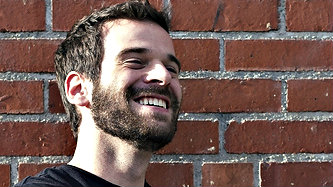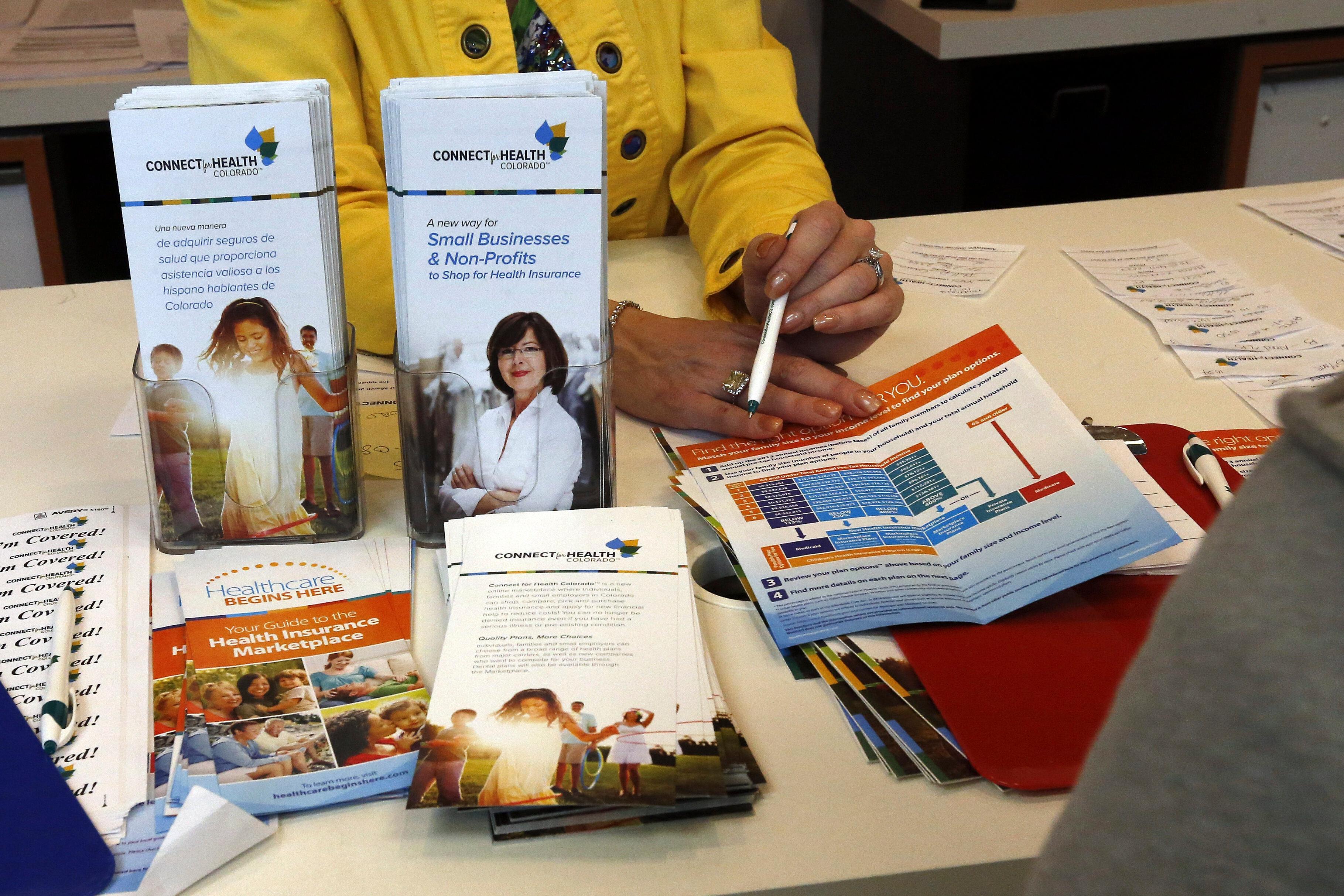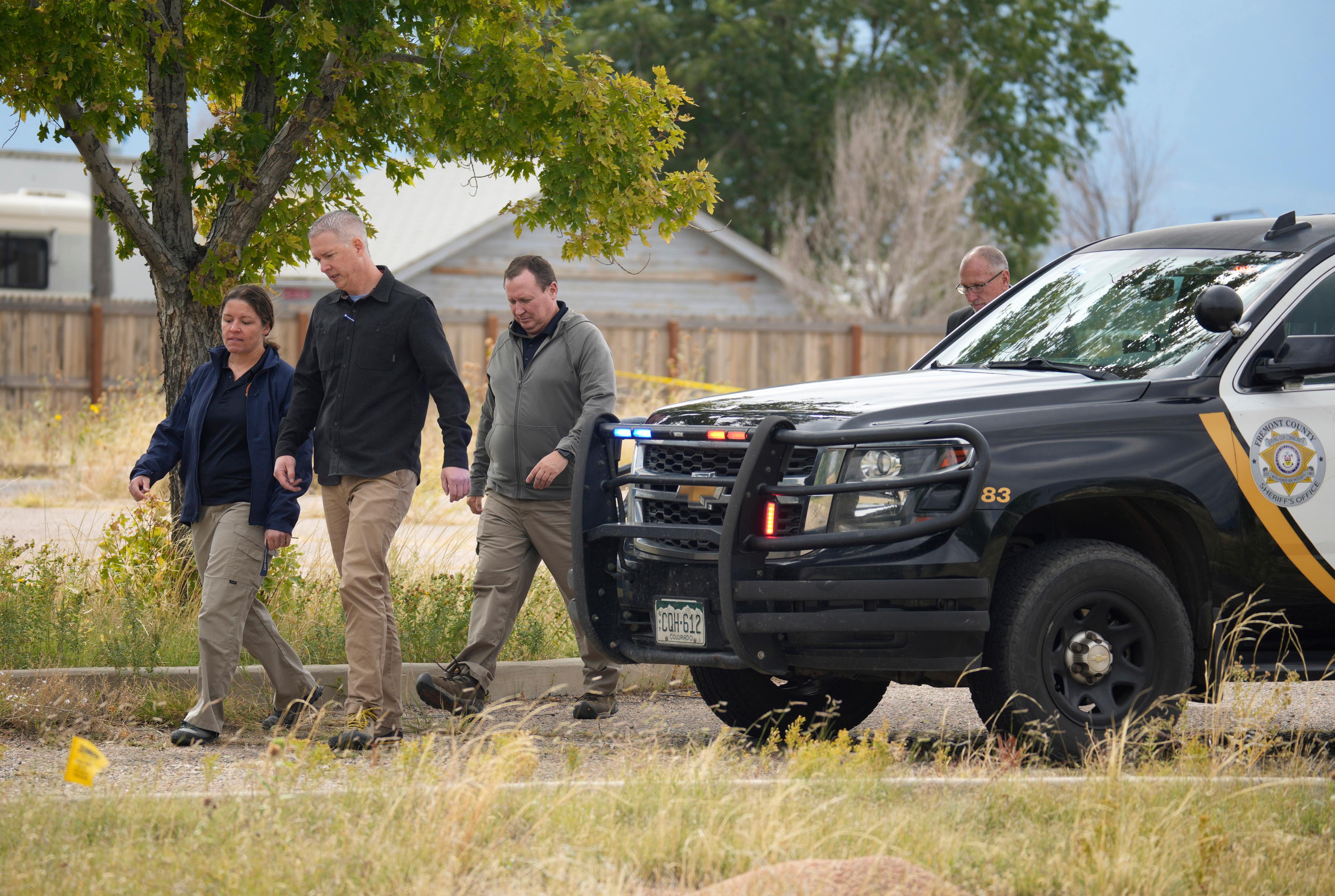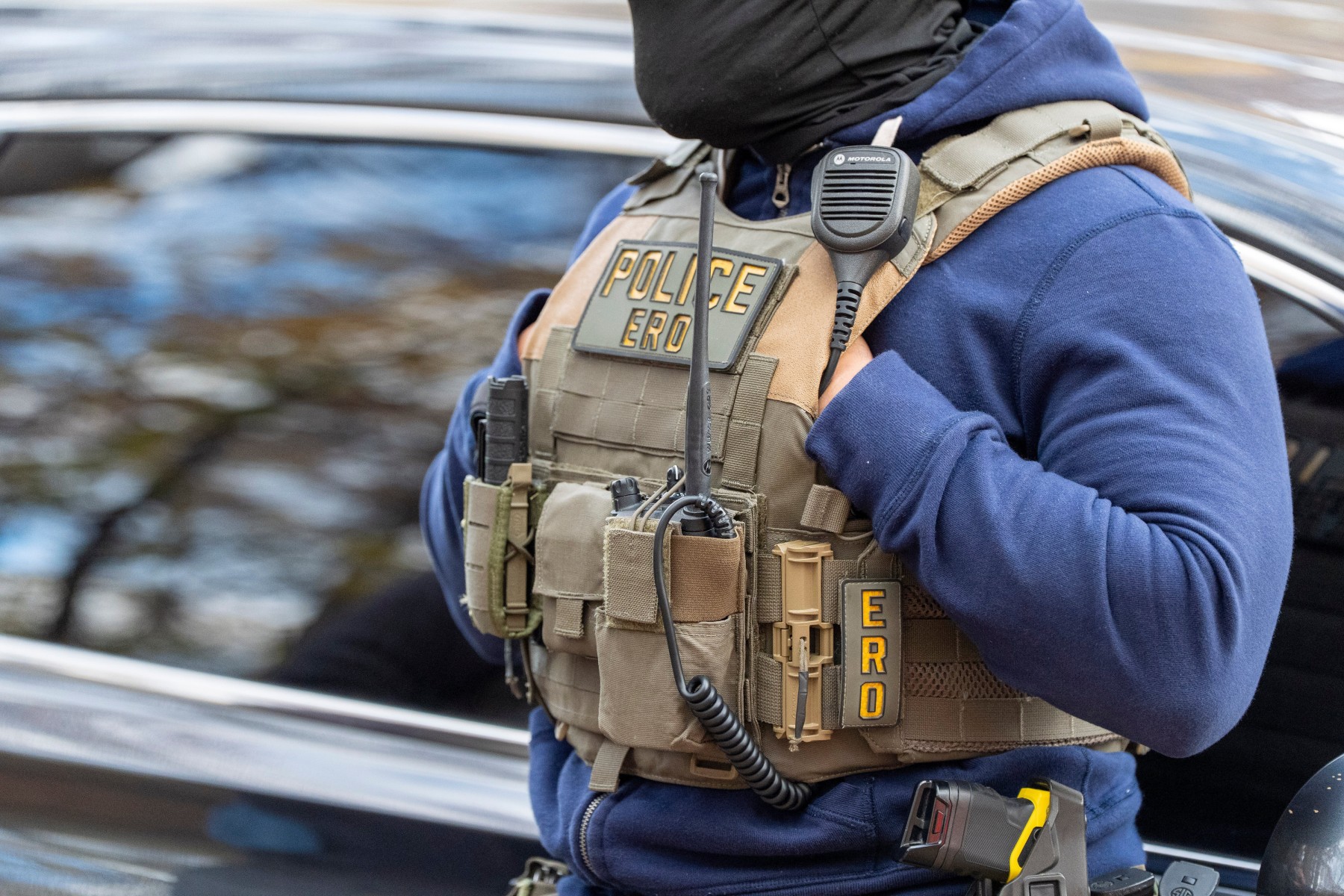
 Dave Liniger has a zest for life and co-founded a small real estate firm in Denver that grew to become Re/Max, the largest real estate franchise in the world.
Dave Liniger has a zest for life and co-founded a small real estate firm in Denver that grew to become Re/Max, the largest real estate franchise in the world.
Liniger is a scuba diver, a jet pilot and he tried flying around the world in a helium balloon.
But early last year, he was lying in a hospital bed, trying to hold his breath long enough to end his life.
Liniger had contracted a vicious staph infection and it was attacking his spinal cord and had paralyzed him.
Then, in what he describes as a split-second decision, he chose to live.
Liniger writes about his road to recovery in the new book "My Next Step." He speaks to host Ryan Warner.
Read an excerpt of the book:
Introduction
I was at the 35th annual RE/MAX of Texas Statewide Convention in Galveston on January 28, 2012 to deliver a speech forecasting housing-industry trends. It was supposed to be a quick stop before heading to Boca Raton for a regional owners meeting the next day. My wife Gail was in Orlando buying golf wear and other merchandise for the pro shop at Sanctuary, the private golf club we own in Colorado. She and I had planned to meet up in Florida as soon as I was done in Galveston.
Margaret Kelly, the CEO of RE/MAX who has been with the company more than twenty-five years, was traveling with me. She was there to speak at the same event.
Gail and I founded RE/MAX in 1973 with the simple notion of giving the very best real estate agents a full slate of support services and one hundred percent of the commission they earned instead of the fifty-fifty split they usually retained at the time. The idea was to build a company where great people could pull together to do great things. At the time, every leader in the industry told me my business platform would never work—that the financial model defied how things were done. They warned me I’d be driven out of the business before I could ever get it off the ground—that the company would never survive.
Fortunately, I wasn’t the kind of man who was afraid to roll up my sleeves and do whatever it took to create my own success. Hard work didn’t scare me any more than my critics did. No job was beneath me, especially in the early years. I spent plenty of long nights stuffing envelopes, polishing presentations and hand-folding thousands of flyers. I look back at those grassroots beginnings and smile at the memory of my fearlessness to face any challenge that came my way. It wasn’t easy, as there were lots of challenges over the years. You see, when you’ve worked in real estate as long as I have, you know that the business is full of cycles. Some years are up, others down. The good and the great among us are separated by how we navigate the lean years—and believe me, there were many times along the way when I didn’t know how we’d make payroll, let alone how I’d put food on the table for my own family.
Forty years later though, RE/MAX is the world's most productive real estate sales force, with roughly 90,000 agents and 6,300 offices in over 85 countries. At our peak, we had more than 100,000 agents. Our agent count dropped into the mid 80s during the economic downturn, but it's once again on the upswing. I look forward to having a big party when we reach the 100,000-agent milestone for the second time, as I know we will. Nothing makes me happier than having fun with my friends and colleagues—just like the many good times I’ve already enjoyed with them throughout our careers.
Although the real estate market took a heavy hit when the housing crisis occurred back in 2007, we persevered and found a way to navigate our way through those murky and tumultuous times. I saw the writing on the wall early enough to become instrumental in advising key players in the U.S. Treasury Department and the U.S. Department of Housing and Urban Development, recommending procedures that helped streamline the “short sale” process for distressed properties, a broadly recognized drag on the housing industry and national economy as a whole. Doing this firmly established RE/MAX as the “go to” company for those in need, keeping our business flowing and inventory moving. I don’t worry about making ends meet as much as I used to, but I still spend many days and nights wondering about and calculating each careful next step, because you never know where life will lead you.
Just before leaving for Texas on that winter day, I felt as if my back was on the verge of giving out again. I’d been having terrible back problems since April 2010. My doctors had told me that some of my pain was due to being a little heavy for my frame and some of it was due to how I had treated my body over the years. Although I love to play golf, the reality is I'm not very good at it. Twisting my body to swing a club hadn’t helped my back issues any more than all of the daredevil stunts I’d participated in for years. I’ve always considered myself to be a really tough son of a bitch and admittedly went out of my way to prove it to the world. In 1998, I trained with a team of NASA experts in the hope of sailing a specially designed and highly technologically advanced helium balloon around the world. Although we didn’t make it, we sure had fun trying! As an auto-racing enthusiast, I had also completed the twenty-four hour sports car endurance race at Daytona, subjecting my body to as many as four G’s around every turn along the way. I’d parachuted out of planes and faced down near-certain death on my more than 35 big game hunts in Africa and other exotic locations around the world. Some might call that need for adventure crazy---I simply called it fun.
But when my back problems became unbearable, I went to see Dr. Chad J. Prusmack, a-local neurosurgeon in Denver, the city I’ve called home for most of my life. I knew of him because two of my officers at RE/MAX had seen him for their ailments, and because he had a terrific reputation.
When I first met Dr. Prusmack, I was surprised by how young, handsome and physically fit he is. I wanted to hate him for his good looks, but instead I admired how smart he was and took comfort in knowing that I would be in good hands if ever needed his services. When we met in 2010, he showed me that my L5, L6 and S1 vertebra, located at the bottom of the tailbone, had become arthritic and worn out. Dr. Prusmack explained that I had pounded the hell out of them during the years with all of the crazy and daring things I’d done to abuse my back.
“At some point Dave, we will have to go in and work on those,” he said.
Because I didn’t get a sense of urgency from him, I dismissed the suggestion thinking privately, these doctorsusually get paid to cut. I surely wasn’t ready to go under the knife anytime soon and it was so refreshing to meet a doctor who didn’t want to put me through a surgery until it was absolutely necessary. That really earned my respect.
“Dave, I don’t want to operate if we don’t have to,” he assured me. “We might be able to put it off for another year or two by giving you steroid shots in your spine to control the pain.”
That was just fine with me.
Dr. Prusmack set me up with his hospital’s pain center right away. The procedure was quick and easy. I was given a sedative, hooked up to an IV to repress the pain and was then given multiple shots to my spine. While the first round helped me feel about eighty percent better, there were still times when I was really suffering. This routine continued every couple of months during the next two years as a way of reducing and managing the distress I was feeling and to help me keep moving at my usual lightning-speed pace without missing a step. The last time I went into the pain center to have the shots I was feeling especially tough. I stupidly told the doctor that I didn’t want the sedatives he usually administered. He looked at me like I was nuts.
“I have a high threshold for pain,” I said with tremendous bravado, insisting that he just give me the shot to my spine.
I was wrong about that. Very wrong.
I was in agony for at least five minutes. It felt as if an electric shock was shooting straight down from my back to my left leg. It was as if I had touched a live spark plug. Not fun at all, and certainly not recommended!
“C’mon tough guy…” the doctor coaxed until the excruciating stinging in my back finally subsided to a tolerable, but still uncomfortable, level. Once the throbbing stopped, I was completely pain free—not only had the burn from the shot eased, but my constant back pain had gone away too. The funny thing about back pain is that most people learn to live with it. Only after it’s gone do you realize how much pain you were actually in. For the first time in two years, I felt great.
From that day on, I went about my life as usual. At my doctor’s suggestion, I started to do some back-stretches in the morning to help keep my body limber and even lifted weights to sustain my physique and strength. As a precaution, I carried my medical records in my briefcase everywhere I went just in case anything happened while I was on the road. All I’d have to do in that event is hand the file to the attending physician in the emergency room and they’d immediately know what we were dealing with. I remained well prepared, did all of the things I was supposed to do, and never looked back—that is, until my trip to Galveston.
I’d gotten pretty good at knowing when I was on the brink of a setback by then, and I just couldn’t shake the feeling that something was about to give on the day I left Denver. The last thing I said to my secretary before boarding my plane was, “Call Dr. Prusmack and make an appointment for when I return. I think the pain meds are wearing off.” I popped a couple of Aleve on board the flight and tried not to give it another thought.
We touched down in Galveston in the early afternoon of January 27th. The event was taking place at the Moody Gardens Hotel, Spa and Convention Center, which also housed an environmental museum, so I took a tour to kill some time. I’ve always had an interest in the environment—so much so that I helped to build The Wildlife Experience Museum in Denver, an educational, entertaining and unique blend of interactive exhibits, large format films, fine art, natural history and community outreach programs connecting visitors with many kinds of wildlife and habitats
Later that night, Margaret and I had dinner with Richard Filip and his wife Jeanne. Richard and Jeanne are good friends of mine who at the time owned the RE/MAX of Texas region. They are very nice people, and I enjoy spending time with them whenever I'm in their area. Sometime toward the end of dinner, Jeanne and I got into a conversation about how much we hate hospitals. We both agreed that we’d rather die of an instant heart attack than spend any significant time in a hospital.
After a terrific evening, we all said goodnight and headed back to our respective hotel rooms. On the way to my suite, I turned to Margaret and said, “You know, I'm really feeling like my back is going to go out tonight. I'm going to leave my door unlocked just in case—at least you can get in to help me if I need anything.” I actually placed one of my shoes on the floor between the door and the jamb to play it safe.
I'm the kind of man who rarely, if ever, asks for help. In my mind, real men don’t need a hand from anyone--ever. In fact, I rather despised the thought of being dependent on someone else, so for me to suggest that I might be in need was actually a very big deal. I just had a gut feeling that something bad was about to happen.
Before I went to bed that night I also thought about the safety latch on the door that led from my room to the hotel hallway. I began to wonder, If someone had to get in through that entry, even with a room key, would leaving it in the locked position bar them from doing so? Just for peace of mind, I got up, unlocked it and went to sleep sometime close to ten o’clock.
Around two in the morning I awoke to find that I couldn’t move my feet. I pulled the sheets off my body and stared at my legs, willing them to move, but they wouldn’t budge even an inch. I physically lifted one with my hands and immediately thought, “This can’t be good.”
In the mid-1970’s I’d had a spinal injection prior to knee surgery that left me temporarily paralyzed from the waist down during the procedure, so I was familiar with the feeling I was having and wasn’t the least bit panicked about it. While I suspected it was a fluke, I did think that I should probably get myself to the local hospital.
Not wanting to disturb anyone in the middle of the night, I took my phone from the nightstand and sent text messages to Richard, Margaret and Charles El-Moussa – a RE/MAX of Texas senior officer – saying, “My back has gone out and I have to go to the hospital. When you get up in the morning would you call or come to my room?”
I spent the next several hours watching the clock tick one minute at a time. I grabbed the television remote and began flipping channels as a distraction. I don’t remember watching anything in particular—just incessantly clicking from one show to the next.
Around five o’clock, I sent a text to my oldest son Dave Jr., who we all call Junior, to see how his night was going. Even though it was an hour earlier in Denver where he lives, I knew he’d answer.
“My night was good—how are you?” he responded.
“My back really hurts and I can’t move my legs.”
“Can you reach the phone in your room to dial 911?”
“No. But I’ve sent messages to Margaret, Richard and Charles to come get me when they wake up.”
Since I’d had chronic back problems for such a long time, it wasn’t unusual for me to say I was in pain. I certainly hadn’t lost feeling in my legs before, but I assumed it had to be a nerve and therefore a temporary condition. I wasn’t alarmed yet and the last thing I wanted to do was worry anyone else, so I stayed cool.
At exactly two minutes after seven that morning, the exterior door to my room swung open. It was the hotel manager along with Charles and Richard. They didn’t even knock. Just then, Margaret came through the door too.
Before anyone could say a word I looked at the gathered group and calmly said, “I'm paralyzed and cannot move my legs at all. Let’s get an ambulance and get me to the nearest hospital. Back door only—no lights, no sirens. Got it?”
Even though I was in a lot of pain, I was able to think clearly and be precise about my plan. I didn’t want anyone from RE/MAX who wasn’t already in my room to see me going out on a stretcher. There were 1800 agents gathered at a continental breakfast that morning and I didn’t need them to see me in this condition or spread the word that something was wrong. I especially didn’t want a blown-out back to appear as something much worse.
I convinced Margaret to take over for me and give the speech I had prepared for the group. As they say, “The show must go on.” And so it did. She stayed back and handled the event while the ambulance whisked me away.
By the time I arrived at the hospital that morning, I was in excruciating pain. Still, I pulled my medical records from my briefcase and handed them to the attending physician in the ER.
“This is probably what’s happening,” I said to the doctor.
If I needed to have back surgery, I wanted to get home to Denver so my personal physicians could assess my situation and make the best decisions for my care. I was willing to stay in Galveston overnight if I had to, but I wanted to go home to get a better handle on my situation.
Once I was in a room and settled in at the hospital, I called my wife to tell her what was happening. I didn’t want to unnecessarily worry Gail without knowing more details. To be fair, the hospital had given me large doses of painkillers, so I'm not even sure I was making a lot of sense when we spoke. I was coherent enough to ask her to leave the conference she was attending in Orlando early and to come get me with the corporate jet. I didn’t want to take a medical airplane—I wanted one I was familiar with and comfortable in.
Since I was on such heavy medication, the exact events of the day remain blurry. I still didn’t have a clue about what was happening to my body, but I was absolutely certain about one thing: The pain had become unbearable. Several hours later, the doctors in Galveston agreed to release me from their hospital so I could return home to be examined by my own physicians. I was unable to walk on my own. It took several people to carry me from the wheelchair to the car and then onto the waiting plane. I don’t remember much except for the pain. Although I initially thought I’d find comfort on one of the aircrafts I was used to traveling on, there was no comfort to be had. I tried lying down on the floor, reclining in a chair and even leaning over the top of one of the seats. There was no relief—just unrelenting anguish.









